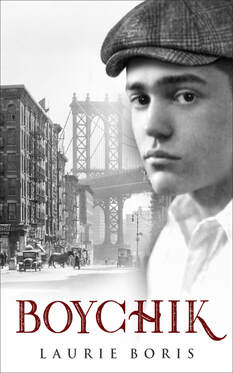
Boychik was primarily the result of creative frustration. I’d been writing a contemporary novella about an elderly artist and his caretaking daughter. I adored my characters and could write forever about them, but the plot wasn’t taking shape. Sometimes when a story isn’t working, I’ll freewrite about the characters’ pasts and see what comes up. Before I knew it, I was writing about a father and son working side by side in the basement of a kosher deli in Brooklyn during the Great Depression. That’s when it hit me: I’d started the story three generations too late! And there, with the corned beef brine sloshing, the metal tongs clicking against stainless steel tubs, the silent conversation between father and son began. Boychik was born.
My first thought was “OMG, I’m writing historical fiction. I don’t know if I can do this.” I enjoy reading historical fiction, but writing it? It seemed too hard. All that research. All those facts to get straight. I know how picky I get when I read historical fiction – if the slightest thing feels anachronistic, it kicks me out of the story.
After that panic attack cooled, I realized the wealth of information I could bring to this story just from memory. Both of my parents grew up in Brooklyn during the thirties and forties. I grew up listening to their stories. About my maternal grandfather who timed trips based on how many cigars he could smoke. About my great aunts who talked in Yiddish, thinking my mother wouldn’t understand. (She did.) They told me about going to the candy store and riding streetcars and spending glorious afternoons at the movies. They talked about playing stickball and jump rope in the streets, getting into fights with the Irish kids…and the food. They had so many wonderful memories of the food. Roasted sweet potatoes wrapped in newspaper, dripping with butter, bought from street vendors. Pickles straight from the barrel, delicatessens on practically every corner. Also, my father’s parents met at a restaurant where my Grandpa Dave (whose seventeen-year-old self adorns the cover of Boychik) was a short order cook. Later they ran a luncheonette. Grandpa sat me down one day and revealed the secrets of his coleslaw and how he made chicken soup—a story that always began the same way: “First, you take a nice chicken…”
From all of their words and memories, I could see, taste, hear, and smell everything about those old neighborhoods. And with that base of confidence, I began to write. Capturing the past felt less intimidating then, and when I needed more information — beyond my parents’ recollections — I’d head to Mama Google or my wonderful local library.
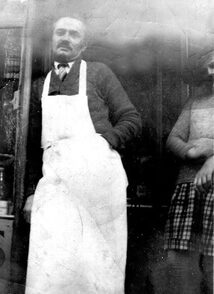
Because Eli loves gangster movies and wants to be a screenwriter, I studied the history of Warner Brothers. Jack Warner was particularly colorful, and prone to firing employees with impunity…then hiring them back. Like James Cagney, whom he’d fired seven times. He’d also once hired William Faulkner, who quickly realized he was wrong for the job and quit in a Faulkneresque letter.
Because of all the food in the story, I learned how to turn salmon into lox, brisket into pastrami, and why you can’t serve an egg cream in a kosher delicatessen.
And because I’m picky like that, I studied the fashions of the day and when certain movies were in theaters so I (hopefully) wouldn’t make one of those errors that would make “reader-me” cringe.
The story was a lot of fun to write, and sinking into Eli’s and Evelyn’s worlds was a welcome escape from current events. But more important was the time I spent with my parents, asking them questions about what Brooklyn had been like, what their lives had been like during the Depression. As they talked about their younger selves, and how their families made do, I gathered up stories I’d never heard before. That, I will always treasure.
Perhaps I’ll use more of their stories when I write the sequel. Wait. Did I say sequel? Apparently I’ve become so fond of writing historical fiction that I’m doing it again. There should be a word in Yiddish for that — for when you dread something then give it a chance and learn to love it. But I’ll have to ask my mother.
| Boychik can be purchased at the links below. For any country: https://books2rbooks2read.com/u/4Ap0WKead.com/u/4Ap0WK For the U.S. https://www.amazon.com/gp/product/B09J43786C |
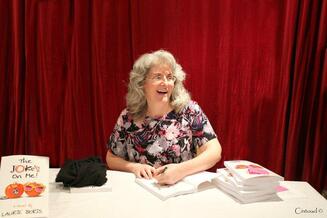
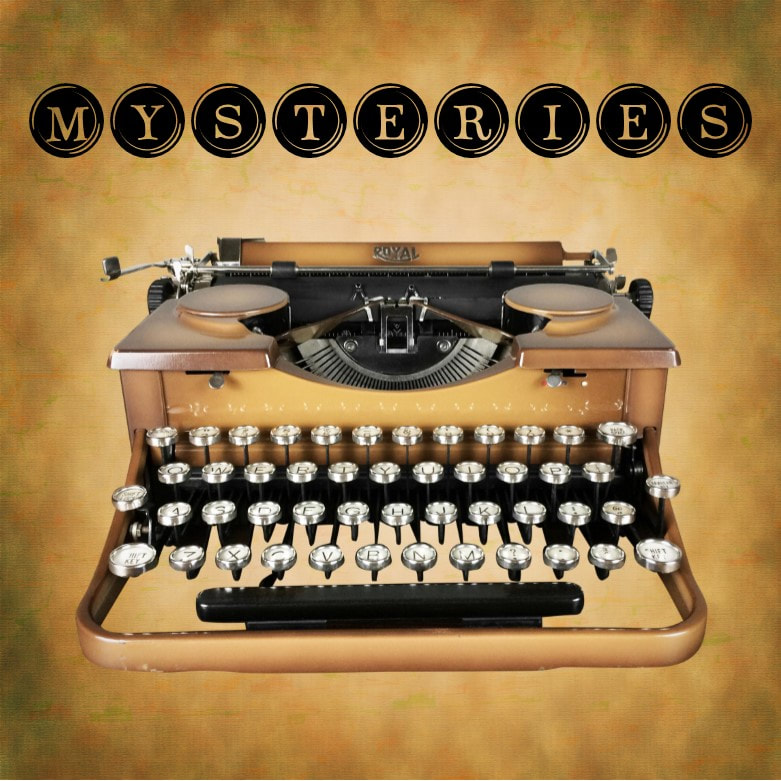
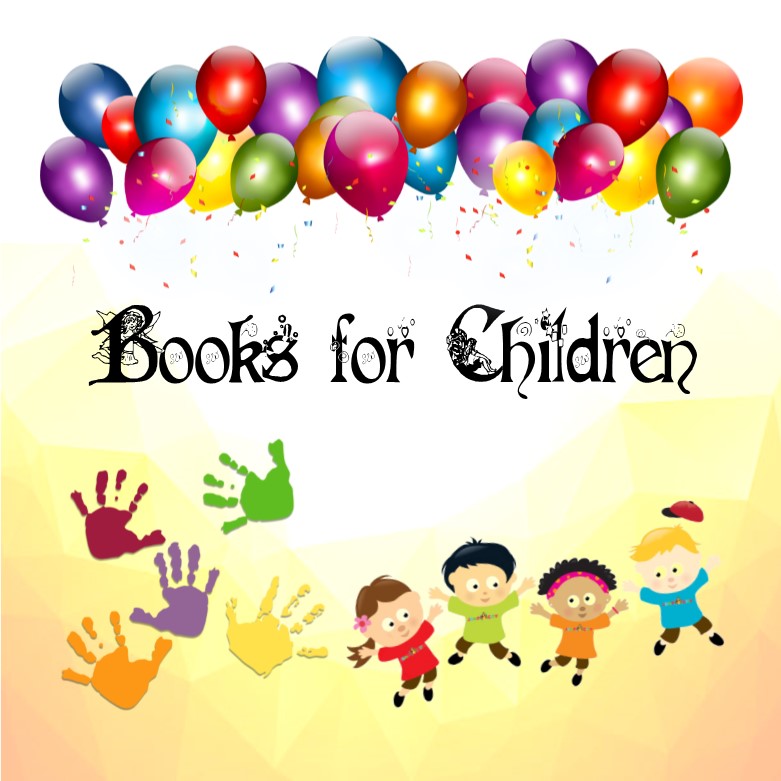
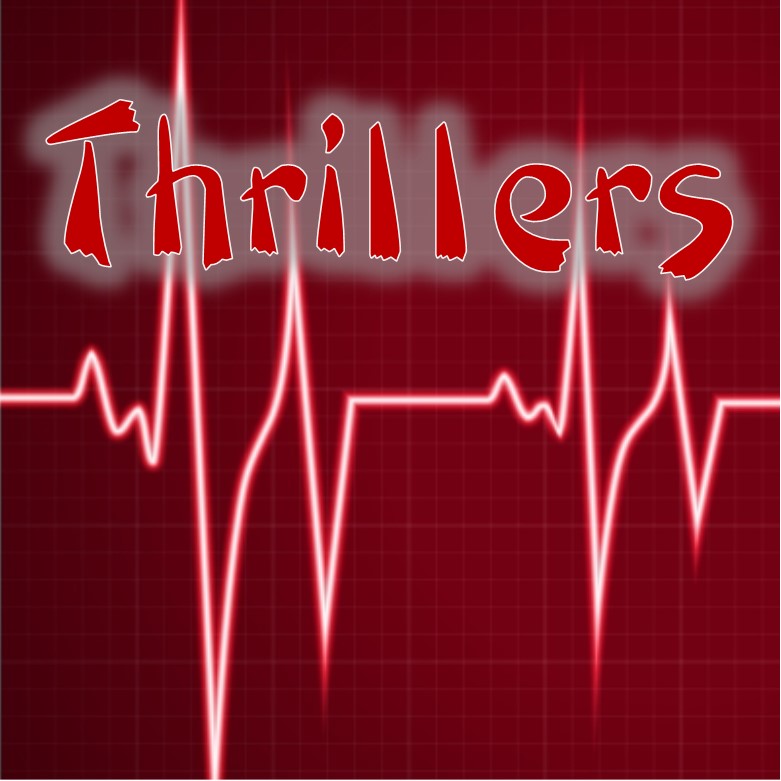
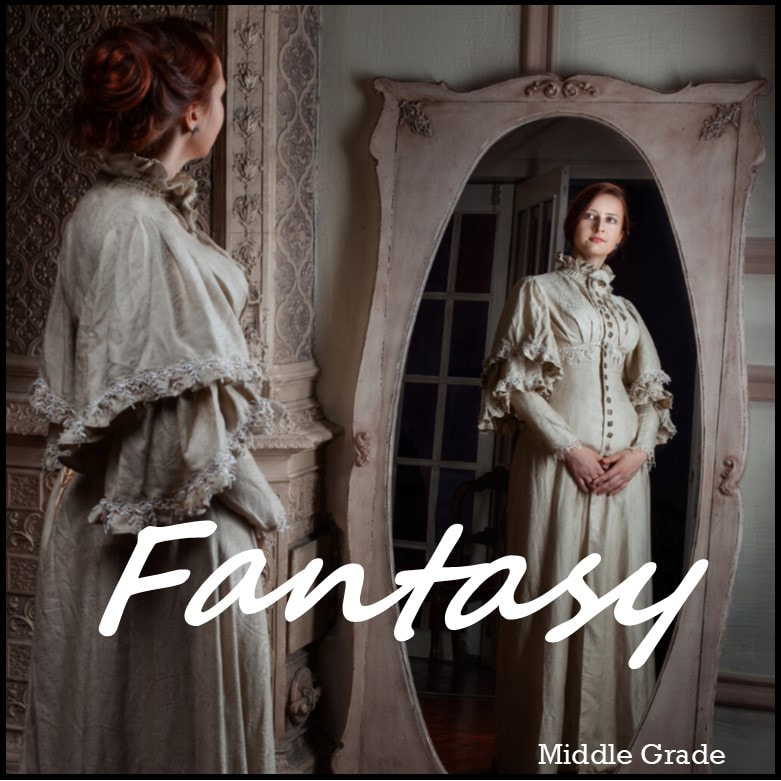





 RSS Feed
RSS Feed